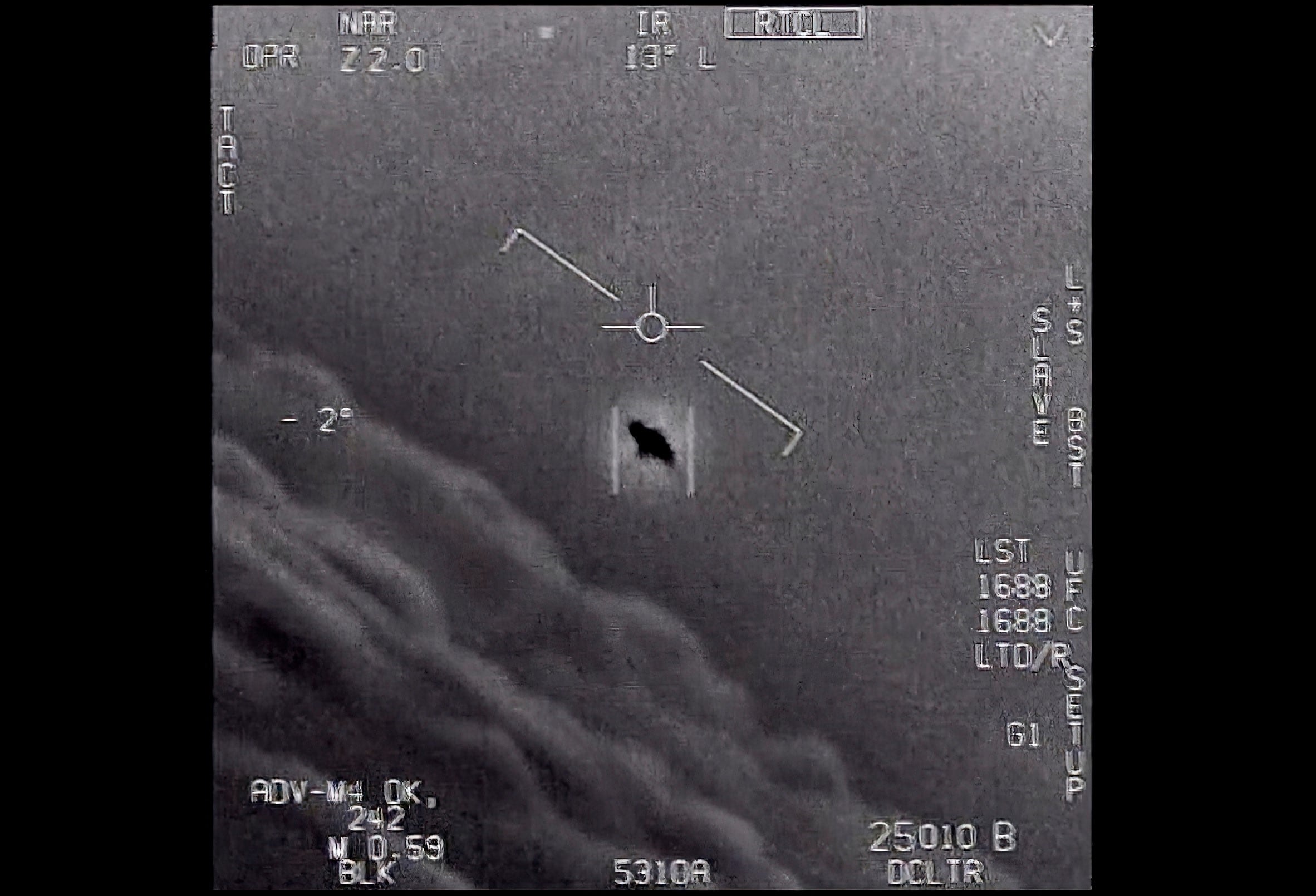Senators want to give the Pentagon’s unidentified anomalous phenomena, or UAP, office a major funding boost to scan the skies and near space for threats from China and beyond – part of the fallout from the Chinese spy balloon that U.S. jets shot down after it drifted across the U.S. continent.
Sen. Kirsten Gillibrand, D-N.Y., announced a funding boost for the All-domain Anomaly Resolution Office, tasked with researching and analyzing UAPs, in the Senate Armed Services Committee’s version of the 2024 National Defense Authorization Act. House lawmakers have not made their funding request for the office public. The final spending bills will be debated later this summer.
“With aggression from adversaries on the rise and with incidents like the Chinese spy balloon, it’s critical to our national security that we have strong air domain awareness over our homeland and around U.S. forces operating overseas,” Gillibrand said in a statement. The Senate bill covers more than just the office’s basic operating expenses, as the 2022 defense budget did last year. It also includes measures to reveal more of what they are finding, which will “reduce the stigma around this issue of high public interest,” she added.
The funding push comes after the Chinese spy balloon served as a reminder that U.S. adversaries are increasingly operating in Earth’s upper atmosphere — and as the public’s fascination with unidentified phenomena grow. In a 2021 Gallup poll, more than 40% of respondents blamed alien spacecraft for at least some of the unidentified incidents in recent years.
Gillibrand’s office would not say what how much more funding the anomaly office would receive, if the measure is passed, as it falls under a classified part of the budget.
If the Senate’s text is passed, current or former government contractors would have 60 days to turn over any unidentified-object data they’ve come across to the Pentagon office. Contractors would also be required to provide a “comprehensive list of all non-earth origin or exotic unidentified anomalous phenomena material,” according to the Senate’s intelligence authorization bill text.
The Intelligence Authorization Act also gave Pentagon UAP office director Sean Kirkpatrick a greater role in coordinating the government’s response to unidentified anomalous phenomena.
Defense Scoop first reported on the changes in the intelligence bill regarding the anomaly office.
Lawmakers have been campaigning to fully fund the office for months. In a March hearing, Gilibrand grilled Defense Secretary Lloyd Austin over the administration’s budget request for 2024 that left the unidentified anomaly office underfunded for the second year in a row.
Austin pledged to fully support the office in the future — and told lawmakers the administration initially requested $11 million for the office. The Pentagon would not confirm the figure that Austin mentioned.
“They just put a placeholder number on it,” Sen. Marco Rubio, R-Fla., told Military Times the week after the hearing. “Luckily, we’re not going to pay attention to [the Biden administration’s] budget numbers.”
On Feb. 16, Rubio, Gillibrand and 12 other senators sent a letter to Deputy Secretary of Defense Kathleen Hicks and Deputy Director of National Intelligence Stacey Dixon calling for full funding for the anomaly office. The Biden administration’s previous funding request for 2023 failed to fund anything beyond the office’s basic operating expenses, the lawmakers argued.
The lawmakers wrote that the All-domain Anomaly Resolution Office “provides the opportunity to integrate and resolve threats and hazards to the U.S., while also offering increased transparency to the American people and reducing the stigma,” of such sightings. The creation and work of the office has linked its work to popular culture on “Area 51″ conspiracy theories and more recent encounters released by the Pentagon that show U.S. military pilots observing unidentified objects flying in the sky.
The New York Democrat has focused on anomaly research funding and coordination since the office’s inception. In 2021, she introduced an amendment to the 2022 defense authorization act that replaced the Office of Naval Intelligence’s Unidentified Aerial Phenomena Task Force and created the All-domain Anomaly Resolution Office. Gillibrand said the goal of the restructuring was to increase intelligence sharing between the Pentagon and the Office of the Director of National Intelligence.
Zamone “Z” Perez is a reporter at Military Times. He previously worked at Foreign Policy and Ufahamu Africa. He is a graduate of Northwestern University, where he researched international ethics and atrocity prevention in his thesis. He can be found on Twitter @zamoneperez.




